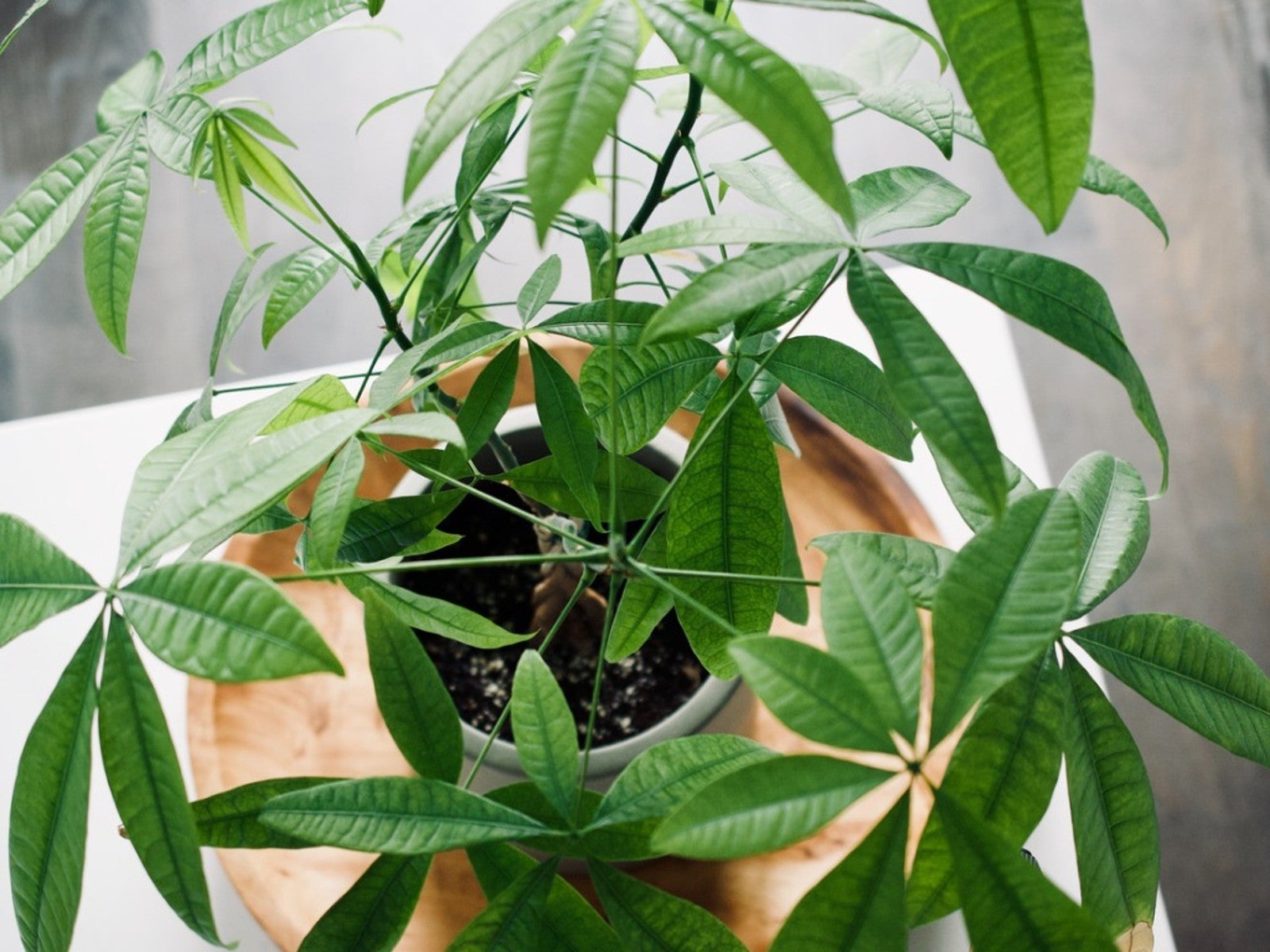How To Prune A Money Tree Houseplant


Sign up for the Gardening Know How newsletter today and receive a free copy of our e-book "How to Grow Delicious Tomatoes".
You are now subscribed
Your newsletter sign-up was successful
The money tree is a popular and attractive houseplant in North American and is a tropical wetland native in Central and South America. Growing a money tree is relatively easy once you find a spot it likes, but it is resistant to change. Knowing how to trim a money tree without overwhelming it is essential.
About Money Tree
Money tree (Pachira aquaitica) is also known as Guiana chestnut or Malabar chestnut. In its native range it can grow up to 30 feet (9.1 m.) tall. It’s a popular houseplant for its decorative foliage and large size and is often sold with a braided trunk. Some people also grow it small as a bonsai.
Like some other tropical houseplants, a money tree will be happy as a clam in the right spot, but reacts badly to being moved. The best way to grow a healthy, low-maintenance money tree is to carefully consider the best place in your home for it. This location should provide bright but indirect and filtered sunlight. Too much direct light will burn foliage, while low light will cause declining health. Try a sunny room in a spot a little bit away from a window.
The money tree also needs warmth and humidity. Avoid drafts and use a wet pebble tray under the container to create moisture. Water the plant thoroughly but let the soil in the dry nearly completely between waterings.
How to Prune a Money Tree
Pruning a money tree is useful for maintaining a reasonable size and an attractive shape. At any time of year, trim off dead, browning leaves and any dead branches to keep up appearances.
For shaping, trim your plant in the spring. This is when the money tree will begin to grow again after winter. Because money plant doesn’t always respond well to change, pruning while it is strong, healthy, and growing is best.
Whether trimming to keep it a medium or large houseplant or as a small bonsai, the principles are the same: clip back a stem a half an inch (1.3 cm.) above a lower leaf node.
Sign up for the Gardening Know How newsletter today and receive a free copy of our e-book "How to Grow Delicious Tomatoes".
Before making these cuts, step back and make a plan. Decide how you want your money tree to be shaped and cut its stem strategically. With regular pruning over the years, you should get to a point at which a spring trim is minimal and mostly done for maintaining the plant's size. Initially, however, you might want to remove more stems to get the desired shape.
If you have a bonsai tree, you can remove a lot of new growth to keep it small. Be careful never to remove all of the new growth in the spring, however. This will harm it.
How to Prune a Money Tree That is Too Tall
A money tree can get as tall as six feet (1.8 m) as a houseplant. If you let one get taller than you like by neglecting to prune it for a few years, you can carefully get it back under control.
Trimming a money tree back down to size will be more successful if you don’t overdo it. Change is hard for this houseplant, so only trim back tall stems by about half their length or less each year. This should be adequate to eventually get the plant back to a reasonable size. If you want it even smaller, tackle the stems again the following year.
The money tree is an attractive houseplant that can be a long-term fixture in your home if you treat it right. The correct conditions of light, temperature, and humidity are more important than pruning. Resist the urge to go too far when trimming, and do it a little at a time to keep your plant healthy.

Mary Ellen Ellis has been gardening for over 20 years. With degrees in Chemistry and Biology, Mary Ellen's specialties are flowers, native plants, and herbs.